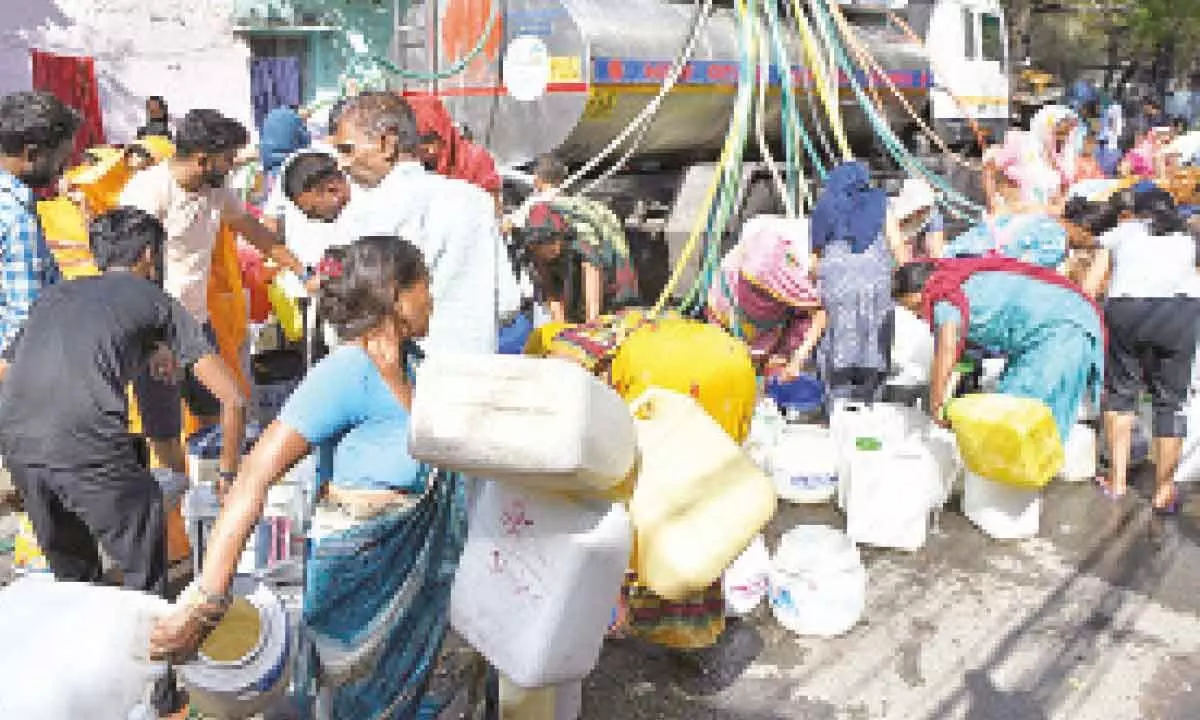Water shortage may disrupt farm, industry sectors

India is facing a growing water shortage as water consumption increases amid rapid economic growth and increasingly frequent natural disasters due to climate change, Moody’s says in a report on environmental risk facing India
New Delhi: Moody’s Ratings on Tuesday said India’s growing water shortage can disrupt farm and industry sectors and is detrimental to the credit health of the sovereign as rising food inflation and decline in income may spark social unrest.
It said decreases in water supply can disrupt agricultural production and industrial operations, resulting in inflation in food prices and hence can be detrimental to credit health of sectors that heavily consume water, such as coal power generators and steel-makers. India’s fast economic growth, accompanied by rapid industrialisation and urbanisation, will reduce water availability in the world’s most populous country, it said.
Also, the water stress is worsening because of an acceleration of climate change, which is causing increasingly intense and frequent extreme climate events such as droughts, heat waves and floods.
India is facing a growing water shortage as water consumption increases amid rapid economic growth and increasingly frequent natural disasters due to climate change, Moody’s said in a report on environmental risk facing India.
“This is detrimental to the credit health of the sovereign, as well as sectors that heavily consume water, such as coal power generators and steel-makers. In the long term, investment in water management can mitigate risks from potential water shortages,” Moody’s Ratings said in the report.
The report comes amid a growing water crisis faced by residents in some parts of the national capital, which has led to protests and political conflict. Delhi Water Minister Atishi, who began her hunger strike on June 21 over the issue, was hospitalised on Tuesday morning after her health deteriorated.
“Decreases in water supply can disrupt agricultural production and industrial operations, resulting in inflation in food prices and declines in income for affected businesses and communities, while sparking social unrest. This in turn can exacerbate volatility in India’s growth and undermine the economy’s ability to withstand shocks,” Moody’s said.
Quoting Ministry of Water Resources data, Moody’s said India’s average annual water availability per capita is likely to drop to 1,367 cubic meters by 2031 from an already-low 1,486 cubic meters in 2021 A level below 1,700 cubic meters indicates water stress, with 1,000 cubic meters being the threshold for water scarcity, according to the ministry.
Moody’s said a heat wave in June 2024, with temperatures hitting 50 degrees Celsius in Dehli and the northern Indian States, strained water supply. Floods, one of the most common types of natural disasters in India, disrupt water infrastructure, which is insufficient to retain water from sudden large downpours.










